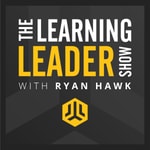On the Nose – Details, episodes & analysis
Podcast details
Technical and general information from the podcast's RSS feed.

On the Nose
Jewish Currents
Frequency: 1 episode/14d. Total Eps: 109

Recent rankings
Latest chart positions across Apple Podcasts and Spotify rankings.
Apple Podcasts
🇫🇷 France - politics
16/06/2025#80🇫🇷 France - politics
13/06/2025#88🇫🇷 France - politics
09/06/2025#75🇫🇷 France - politics
05/06/2025#80🇺🇸 USA - politics
27/05/2025#99🇨🇦 Canada - politics
25/05/2025#95🇫🇷 France - politics
12/03/2025#96🇫🇷 France - politics
11/03/2025#66🇨🇦 Canada - politics
18/12/2024#100🇨🇦 Canada - politics
13/12/2024#94
Spotify
No recent rankings available
Shared links between episodes and podcasts
Links found in episode descriptions and other podcasts that share them.
See all- https://www.instagram.com/p
11467 shares
RSS feed quality and score
Technical evaluation of the podcast's RSS feed quality and structure.
See allScore global : 63%
Publication history
Monthly episode publishing history over the past years.
Talking About Antisemitism
Episode 85
jeudi 5 septembre 2024 • Duration 01:00:55
Recently, far-right figures like Candace Owens and Tucker Carlson have hitched their anti-Israel politics to blatant antisemitism, platforming Holocaust denial and using decontextualized passages from religious texts like the Talmud to argue for the fundamental immorality of Judaism; in some cases their rhetoric has migrated beyond the right-wing echo chamber. Meanwhile, following a cheeky tweet by conspiracy-minded Grayzone editor Max Blumenthal that attributed the congressional losses of Jamaal Bowman and Cori Bush to the “Zionist occupied government,” or “ZOG,” debates raged online about the supposed accuracy or usefulness of the term, which has clear origins in the neo-Nazi movement. In this episode of On the Nose, editor-in-chief Arielle Angel interviews Shane Burley and Ben Lorber, authors of the new book Safety Through Solidarity: A Radical Guide to Fighting Antisemitism, about these trends and how we confront them. They examine the real difficulties of talking about antisemitism—and assessing actual risk—in an alarmist environment where antisemitism is frequently weaponized against Palestinians and their allies, and discuss what it means to build principled movements rooted in mutual self-interest and collective liberation.
Thanks to Jesse Brenneman for producing and to Nathan Salsburg for the use of his song “VIII (All That Were Calculated Have Passed).”
Texts Mentioned and Further Reading:
Safety Through Solidarity: A Radical Guide to Fighting Antisemitism by Shane Burley and Ben Lorber
“The Right’s Anti-Israel Insurgents,” Ben Lorber, Jewish Currents
“Examining the ADL’s Antisemitism Audit,” Shane Burley and Jonah ben Avraham, Jewish Currents
The Necessity of Exile: Essays from a Distance by Shaul Magid
Zioness event about campus antisemitism
“Jewish settlers stole my house. It’s not my fault they’re Jewish,” Mohammed El Kurd, Mondoweiss
Rafael Shimunov’s thread about talking about antisemitism on the left
“What Comes Next for the Palestinian Youth Movement,” Mohammed Nabulsi, Hammer & Hope
Doppelganger: A Trip Into the Mirror World by Naomi Klein
Study on the correlation between antisemitism and Israeli violence against Palestinians
"
The Killing of Ismail Haniyeh
Episode 84
vendredi 9 août 2024 • Duration 31:51
On July 31st, Ismail Haniyeh, Hamas’s top political leader, was killed in Iran. Haniyeh came to the capital city of Tehran for the presidential inauguration; an explosive device went off in the guest house where he was staying. Just hours before, Haniyeh had met with Iranian Supreme Leader Ayatollah Ali Khamenei. Israel hasn’t taken responsibility for the attack, but they’re widely believed to be responsible—especially given their history of targeted political assassinations. Indeed, Haniyeh’s killing followed Israel assassination of Hezbollah commander Fuad Shukr in Lebanon one day earlier.
Haniyeh was killed in the middle of ceasefire negotiations between Hamas and Israel. With the death toll in Gaza nearing 40,000, and the family members of Israeli hostages desperately calling for a prisoner exchange, the pressure to come to an agreement has been mounting. But Haniyeh was a chief negotiator in those talks, and now, the chances of arriving at a deal seem further than ever.
Meanwhile, Iran has vowed to retaliate against Israel for the attack on their soil. As of Thursday, August 8th, that hasn’t happened yet, but many now fear that tensions could lead to a wider regional war.
In this collaboration between Unsettled Podcast and On the Nose, Unsettled producer Ilana Levinson interviews Tareq Baconi, author of Hamas Contained: The Rise and Pacification of Palestinian Resistance, to make sense of these developments and what Haniyeh’s assassination means for the future of the region.
This episode was produced by Ilana Levinson with Emily Bell. Music in this episode from Blue Dot Sessions. Thanks to Nathan Salsburg for the use of his song “VIII (All That Were Calculated Have Passed).”
Further Reading:
“Hamas Contained: The Rise and Pacification of Palestinian Resistance,” Tareq Baconi
“Hamas: Gaza (Ep 3),” Unsettled Podcast
“Tareq Baconi: ‘There’s no going back,’” Unsettled Podcast
“Regional War: An Explainer,” Alex Kane and Jonathan Shamir, Jewish Currents
The End of "Curb Your Enthusiasm"
Episode 75
jeudi 23 mai 2024 • Duration 52:02
On April 7th, Larry David’s sitcom Curb Your Enthusiasm—which debuted in 2000 and ran on and off for 24 years—concluded its twelfth and final season. For many critics, the finale marked not only the completion of a beloved show that sometimes seemed like it would run forever, but also the end of an era of American Jewish comedy, embodied by David and other comics of his generation. Curb follows the everyday antics of a fictionalized version of David, living a posh life in Los Angeles following the success of the iconic ’90s sitcom Seinfeld, which he co-created with Jerry Seinfeld. David’s avatar is an over-the-top archetype of a Brooklyn Jew raised in the mid-century, and the show is animated by the character’s dry affect and hyperbolic intransigence, which often put him at odds with reigning social mores, fueling absurd interactions with strangers, friends, and foes. Over the course of Curb’s long run, it’s had a profound impact on the shape of modern American comedy, while the caricature at its core has emerged as one of the defining representations of American Jewishness.
On this episode of On the Nose, managing editor Nathan Goldman, executive editor Nora Caplan-Bricker, contributing editor Ari M. Brostoff, and contributing writer Rebecca Pierce discuss Curb’s depictions of Jewishness, Blackness—and, in one famous episode, Palestinianness—and share their thoughts on the show’s final season and David’s comedic legacy.
Thanks to Jesse Brenneman for producing and to Nathan Salsburg for the use of his song “VIII (All That Were Calculated Have Passed).”
Articles, Episodes, and Films Mentioned:
“The Ski Lift,” Curb Your Enthusiasm
“The End,” Curb Your Enthusiasm
“American Jewish Comedy Sings a Swan Song,” P.E. Moskowitz, Vulture
“Meet the Blacks,” Curb Your Enthusiasm
A Serious Man, directed by Joel and Ethan Coen
“Atlanta,” Curb Your Enthusiasm
“The Lawn Jockey,” Curb Your Enthusiasm
“The N Word,” Curb Your Enthusiasm
“Palestinian Chicken,” Curb Your Enthusiasm
“No Lessons Learned,” Curb Your Enthusiasm
“The Finale,” Seinfeld
“Jerry Seinfeld Admits He ‘Sometimes’ Regrets the Seinfeld Finale,” Corinna Burford, Vulture
On Zionism and Anti-Zionism
Episode 74
jeudi 16 mai 2024 • Duration 50:58
The recent wave of anti-Zionist Gaza solidarity protest encampments on college campuses has reignited a longstanding public debate over how to define “Zionist.” On May 8th, a week after the Columbia University encampment was dismantled by the NYPD, more than 500 Jewish students at the school who identify as Zionists published an open letter in which they laid out their perspective. “A large and vocal population of the Columbia community does not understand the meaning of Zionism, and consequently does not understand the essence of the Jewish People,” they argued, positing that Zionism and Judaism are fundamentally intertwined. The claims echoed a common mainstream Jewish talking point, that the student movement’s stance against Zionism and its adherents is a de facto rejection of Jews—a discourse that plays out against the backdrop of a yearslong Israel advocacy effort to redefine Zionism not as a political ideology but as a protected ethnic identity under US civil rights law. Yet anti-Zionists, Jewish and otherwise, maintain that their position is simply a rejection of the political structure of Jewish supremacy that undergirds the State of Israel.
On this episode, Jewish Currents staff members discuss how they describe their politics in relation to the term “Zionist” and why. They reflect on the comparative advantages and limits of using the labels “anti-Zionist,” “non-Zionist,” and “cultural Zionist” to articulate opposition to a state project of Jewish supremacy and support of Palestinian liberation and right of return, and consider how those identifications impact relationships within the Jewish community and with the broader solidarity movement.
Thanks to Jesse Brenneman for producing and to Nathan Salsburg for the use of his song “VIII (All That Were Calculated Have Passed).”
BOOKS AND ARTICLES MENTIONED AND FURTHER READING:
Excerpt from “Zionism from the Standpoint of Its Victims,” Edward Said
“How ‘Zionist’ became a slur on the US left,” Jonathan Guyer, The Guardian
“A plan to save Israel — by getting rid of Zionism,” Emily Tamkin, The Forward, on Shaul Magid’s new book exploring a “counter-Zionist” future
Haifa Republic: A Democratic Future for Israel, Omri Boehm
Address by Max Nordau at the First Zionist Congress, 1897
“The Suppressed Lineage of American Jewish Dissent on Zionism,” Emma Saltzberg, Jewish Currents, on the historical evolution of the meaning of the term “Zionism”
Controversy at the Contemporary Jewish Museum
Episode 73
jeudi 2 mai 2024 • Duration 33:40
Last fall, the Contemporary Jewish Museum in San Francisco put out an open call for artists to apply for the California Jewish Open. Some of the artists that were accepted into the show identified themselves openly in the application as anti-Zionist, and submitted work that contained content that straightforwardly advocated for Palestinian liberation.
But in April, seven of the artists withdrew from the show. A statement released by a group calling themselves California Artists for Palestine cited an “inability to meet artists’ demands, including transparency around funding and a commitment to BDS [Boycott, Divestment, Sanctions].” The artists demanded to be able to have final say on wall text about the works, and to be able to pull or alter their works at any time. They were also concerned about potential “curatorial both-sidesism,” referring to an email they received on March 22nd which asked artists to sign off on the fact that their work would be “presented in proximity to artwork(s) by other Jewish artists which may convey views and beliefs that conflict with [their] own.” The museum has decided to leave blank the wall space designated for this work, “to honor the perspective that would have been shared through these works, and to authentically reflect the struggle for dialogue that is illustrated by the artists’ decisions to withdraw.”
This week, Jewish Currents editor-in-chief Arielle Angel speaks to two anti-Zionist multidisciplinary artists who made divergent decisions about whether to stay in the group show: Amy Trachtenberg, who opted to remain, and Liat Berdugo, who has pulled out. The trio discuss the perils and possibility of Jewish institutional life—in the art world and beyond—at this moment, the applicability of BDS in this case, and the uses and limitations of “dialogue.”
Thanks to Jesse Brenneman for producing and to Nathan Salsburg for the use of his song “VIII (All That Were Calculated Have Passed).”
ARTICLES MENTIONED AND FURTHER READING:
“Jewish Anti-Zionist Artists Withdraw From Contemporary Jewish Museum Show,” Matt Stromberg, Hyperallergic
“Anti-Zionist Jewish artists pull out of CJM exhibit when demands are not met,” Andrew Esensten, J Weekly
“CJM visitors wonder: Does the Palestinian flag belong on the museum’s walls?,” Andrew Esensten, J Weekly
Palestinian Campaign for the Academic and Cultural Boycott of Israel (PACBI) guidelines
“Campus Politics Takes the Stage in The Ally,” On the Nose, Jewish Currents
Jewish Voice for Peace/IfNotNow Passover Campaign
“Biting the Hand,” The Editors, e-flux
“
Chevruta: Understanding Aaron Bushnell’s Sacrifice
Episode 72
vendredi 26 avril 2024 • Duration 38:51
Chevruta is a column named for the traditional method of Jewish study, in which a pair of students analyzes a religious text together. In each installment, Jewish Currents will match leftist thinkers and organizers with a rabbi or Torah scholar. The activists will bring an urgent question that arises in their own work; the Torah scholar will lead them in exploring their question through Jewish text. By routing contemporary political questions through traditional religious sources, we aim to address the most urgent ethical and spiritual problems confronting the left. Each column will include a column, podcast, and study guide.
On February 25th, Aaron Bushnell, an active-duty member of the US Air Force, self-immolated outside the Israeli embassy in Washington, DC. “I will no longer be complicit in genocide,” Bushnell said in a livestreamed video, broadcasting what he declared an “an extreme act of protest”—though, he added, “compared to what people have been experiencing in Palestine at the hands of their colonizers, it’s not extreme at all.” Bushnell, who was dressed in his army uniform, then doused himself in gasoline and set himself on fire, shouting “Free Palestine” until he collapsed. He died later that day. While some were quick to dismiss Bushnell’s action as a manifestation of mental illness, many on the left expressed admiration for his sacrifice—which, as intended, drew global attention to US complicity in Israel’s brutal, ongoing assault on Gaza.
In this chevruta, Rabbi Lexi Botzum and Jewish Currents editor-in-chief Arielle Angel engage with Jewish texts that examine the concepts of martyrdom, sacrifice, and public spectacle, considering how our tradition might help us to engage with Aaron Bushnell’s act, and the question of how much we must sacrifice for justice.
You can find the column based on this conversation and a study guide here.
Thanks to Jesse Brenneman for producing and to Nathan Salsburg for the use of his song “VIII (All That Were Calculated Have Passed).”
Articles Mentioned:
All Jewish sources are cited in the study guide, linked above
“Aaron Bushnell’s Act of Political Despair,” Masha Gessen, The New Yorker
“The Work of the Witness,” Sarah Aziza, Jewish Currents
“The Nature of Mass Demonstrations,” John Berger, International Socialism
“Burnt Offerings,” Erik Baker, n+1
Jewish Organizing at Columbia’s Encampment
Episode 71
jeudi 25 avril 2024 • Duration 41:58
Last week, the NYPD—called in by Columbia University president Minouche Shafik—arrested 108 Columbia and Barnard students, who had set up a Gaza solidarity encampment on a lawn in the center of campus. The group of students was subsequently suspended, and those at Barnard were evicted from campus housing. Over the following days, others reestablished the encampment—continuing the call for the university to disclose their investments and divest from Israeli companies, to boycott Israeli academic institutions, and to keep cops off campus, among other demands.
In the week since the encampment was established—as the tactic spreads to campuses around the country—the movement has been maligned as a threat to Jewish students, and lawmakers like Sens. Tom Cotton and Josh Hawley as well as Jewish communal leaders like Anti-Defamation League CEO Jonathan Greenblatt have called for bringing in the National Guard. Jewish Currents editor-in-chief Arielle Angel spoke to three Jewish student organizers arrested at the original encampments—Izzy Lapidus, Sarah Borus, and Lea Salim—about their experiences over the past week and what Palestine solidarity organizing has looked like on their campuses since October 7th.
Thanks to Jesse Brenneman for producing and to Nathan Salsburg for the use of his song “VIII (All That Were Calculated Have Passed).”
Further Reading:
"Evidence of torture as nearly 400 bodies found in Gaza mass graves," Al Jazeera
“Statement on Columbia’s Gaza Solidarity Protest Community Values,” Columbia University Apartheid Divest (CUAD)
“Republican Senators Demand Biden Use National Guard to Suppress Columbia Protests,” Nikki McCann Ramirez, Rolling Stone
Passover seder at the Columbia encampment
"NYPD Investigating 'Skunk' Chemical Attack at Columbia U," Johanna Alonso, Inside Higher Ed
“Republicans Wanted a Crackdown on Israel’s Critics. Columbia Obliged,” Michelle Goldberg, The New York Times
Unpacking the Campus Antisemitism Narrative
Episode 70
jeudi 11 avril 2024 • Duration 42:55
In recent months, a buzzy new pair of articles on the specter of rising “Israel-related” antisemitism have arrived in The Atlantic. One, by Franklin Foer, heralds the end of the “golden age of American Jews,” while another, by Theo Baker, details the current climate on Stanford’s campus. Though similar stories have circulated in Jewish communal outlets for years, these two longform pieces demonstrate how the subject has also taken center-stage in liberal media since October 7th, against a backdrop of increased scrutiny on college campuses. The media handwringing has been accompanied by political and legal crackdowns: The ADL and the Brandeis Center have filed a lawsuit against Ohio State, the House Committee on Education has launched an investigation into Columbia, and Harvard President Claudine Gay and University of Pennsylvania President Liz Magill have both been pushed out of their positions due to their handling of tensions around campus antisemitism. But is this really all about antisemitism? What do these narratives leave out of frame?
In this episode, Jewish Currents editor-in-chief Arielle Angel, editor-at-large Peter Beinart, associate editor Mari Cohen, and publisher Daniel May dissect the common features of these campus antisemitism narratives—and consider what ends they serve. They discuss the difference between antisemitism and political ostracism, the need for more accurate reporting on campus dynamics, the confluence between the anti-antisemitism and the anti-DEI crusade, and the ways that the campus antisemitism panic can result in crackdowns on—rather than protection of—liberal freedoms.
Thanks to Jesse Brenneman for producing and to Nathan Salsburg for the use of his song “VIII (All That Were Calculated Have Passed).”
Articles Mentioned and Further Reading:
“The Golden Age of American Jews Is Ending,” Franklin Foer, The Atlantic
“The War at Stanford,” Theo Baker, The Atlantic
“The New Antisemitism,” Noah Feldman, Time Magazine
“‘Pro-Israel’ Pundits Don’t Talk About Israel,” Peter Beinart, Jewish Currents
“Toward a Sober Assessment of Campus Antisemitism,” Ben Lorber, Jewish Currents
“Homeland Violence and Diaspora Insecurity: An Analysis of Israel and American Jewry,” Ayal Feinberg, Politics and Religion (and similar studies from Belgium and
Campus Politics Takes the Stage in "The Ally"
Episode 69
jeudi 28 mars 2024 • Duration 38:06
In The Ally—a new play at the Public Theater by Itamar Moses—an Israeli American adjunct professor is forced to confront the limits of his solidarity when his decision to support a Black student seeking justice for the police murder of a cousin becomes entangled with questions of Israel and Palestine. Though set before October 7th, the play is undoubtedly “ripped from the headlines,” taking up questions of campus antisemitism and liberal Jewish discomfort with left politics, and giving every “side” in the argument—hardline Zionists, Palestinians, young Jewish leftists, Black activists, and Jewish liberals—a chance to state its case. But does the play actually push liberal audiences beyond their preconceived biases, or does it allow them to remain in a state of comfortable ambivalence? In this episode, Jewish Currents editor-in-chief Arielle Angel, contributing writer Alisa Solomon, and artist-in-residence Fargo Nissim Tbakhi discuss what The Ally reveals about liberal America’s view of the left, and the opportunities and limitations of theater in spurring action.
Thanks to Jesse Brenneman for producing and to Nathan Salsburg for the use of his song “VIII (All That Were Calculated Have Passed).”
Plays Mentioned and Further Reading:
The Ally by Itamar Moses at The Public Theater
Disgraced by Ayad Akhtar
“Who Is Tom Stoppard’s “Jewish Play” For?,” On the Nose, Jewish Currents
“Jewish Groups Condemn Black Lives Matter Platform for Accusing ‘Apartheid’ Israel of ‘Genocide,’” Sam Kestenbaum, Haaretz
Language, the Media, and Palestine
Episode 68
jeudi 14 mars 2024 • Duration 34:46
In the public sphere, the discursive battle over Israel and Palestine often comes down to language, with one’s willingness to use individual words and phrases like “apartheid” and “settler colonialism,” or “the right to exist” and “human shields,” usually offering a pretty reliable indication of their worldview. Since October 7th, mainstream and independent media alike have been faced with endless choices about how to represent the unfolding events: Which words are used to describe the Hamas attacks and which ones are used to describe those of the Israeli military, for example, and what does it say about the perceived humanity of each group of victims? What should reporters do with words like “genocide” or “war crimes,” which will take some time to adjudicate legally, but which also serve a function in naming unfolding events? This isn’t just a question about words, but also grammar and syntax: In a pattern reminiscent of reporting on police attacks on Black Americans, headlines often employ the passive voice when dealing with Israeli military action, obscuring the culpability of those responsible for attacks on Palestinians.
In this episode, Jewish Currents editor-in-chief Arielle Angel talks to Intercept senior editor Ali Gharib, independent journalist Dalia Hatuqa, and former New York Times Magazine writer Jazmine Hughes about the decisions that newsrooms are making regarding the language they use to discuss Israel/Palestine, and what these decisions mean about the state of journalism today.
Thanks to Jesse Brenneman for producing and to Nathan Salsburg for the use of his song “VIII (All That Were Calculated Have Passed).”
Articles Mentioned and Further Reading:
“Coverage of Gaza War in the New York Times and Other Major Newspapers Heavily Favored Israel, Analysis Shows,” Adam Johnson and Othman Ali, The Intercept
“CNN Runs Gaza Coverage Past Jerusalem Team Operating Under Shadow of IDF Censor,” Daniel Boguslaw, The Intercept
“Between the Hammer and the Anvil: The Story Behind the New York Times October 7 Exposé,” Jeremy Scahill, Ryan Grim, and Daniel Boguslaw, The Intercept
“In Internal Meeting, Christiane Amanpour Confronts CNN Brass About ‘Double Standards’ on Israel Coverage,” Daniel Boguslaw and Prem Thakker, The Intercept
“This War Did Not Start a Month Ago,” Dalia Hatuqa, The New York Times
Jazmine Hughes on Democracy Now
“‘There Has Never Been Less Tolerance for This’: Inside a New York Times Magazine Writer’s Exit Over Gaza Letter,” Charlotte Klein, Vanity Fair
“A Poetry of Proximity,” Solmaz...









